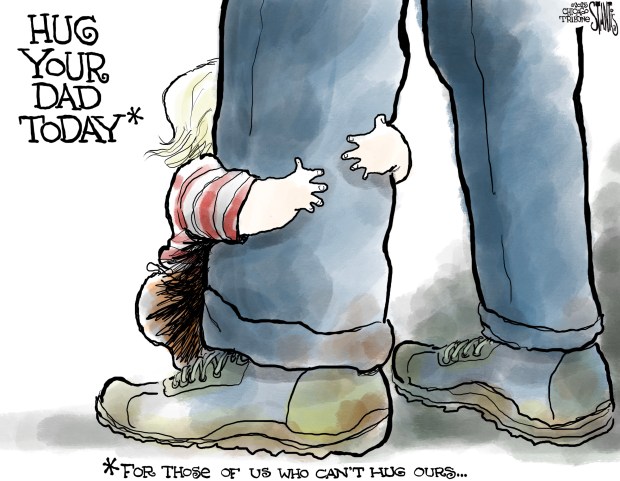In any organization, leaders set the standard. One of their primary responsibilities is to ensure the safety of the people in their charge and to make sure people feel as though they matter and they belong. Sometimes, leaders face responding to staffers when they raise concerns of harassment and discrimination.
For many years, I guided clients and internal teams on these issues as a human resources leader. Like many, I was appalled to learn of the allegations that former female employees in Mayor Brandon Johnson’s office made against former communications director Ronnie Reese. The accusations include unwanted touching, antisemitism and harassment. I was equally disheartened to hear of the ineffective response of the mayor’s leadership team, including chief of staff Cristina Pacione-Zayas, who demonstrated a shocking lack of understanding and urgency needed to appropriately respond to this situation after she was notified by the Human Resources Department.
As in other places of employment, sexual harassment is prohibited in Chicago city government, and accusations require a prompt, thorough investigation. The Commission on Human Relations strengthened the city’s sexual harassment laws in 2022 to reinforce a zero-tolerance policy for violence and harassment in the workplace. When Johnson’s female staffers filed their complaints, a formal investigation should have been launched immediately, and safeguards should have been in place to ensure that all leaders followed due process, protected the integrity of the complainants and prevented retaliation.
Unfortunately, this was not the case. According to news reports, the mayor’s chief of staff knew about the complaints for months but did not address these concerns by ensuring the office was safe for the courageous women who came forward. Instead, she “‘repeatedly advocated for Reese’s inclusion in meetings about this matter,” documents show. For instance, and most concerning, she offered up “peace circles” that would involve Reese and the complainants. While peace circles can be powerful tools for restorative justice, they cannot address deeper leadership failures rooted in poor decision-making. It has since emerged that the circles were intended to address other issues, not the harassment itself.
Regardless, what may have been seen as a team-building exercise during an ongoing investigation now appears to be a significant oversight.
When asked about the harassment scandal, Johnson responded: “I do not tolerate antisemitic, misogynistic, sexist, racist, xenophobia, anti-Blackness, anti-immigrant behavior.” As with any situation, words are not enough if they are not backed by action. Despite this stated zero tolerance, the mayor’s office promoted Reese following initial complaints. The mayor further rejected responsibility by blaming a flawed process he “inherited” and ultimately claimed he only learned of the harassment because of the records that came to light from Freedom of Information Act requests.
These are appalling responses from the mayor and the highest-ranking member of his leadership team. These officials not only failed to safeguard the rights of their team, but they also emboldened a harasser to claim he was “untouchable.” Specifically, this inaction sends a chilling message to other staff members — particularly women, as well as city workers and Chicago residents — that their voices will not be heard, and they cannot trust their leaders. Rather than offer peace circles, the mayor’s chief of staff should have offered accountability. There should also have been a mechanism in place to ensure that any employee under active investigation is not eligible for promotion.
When the mayor took office, he promised a “better, stronger, safer Chicago.” Yet, he and his closest advisers continue to show that, when facing a legal and moral crossroads, they prioritize protecting their friends and their own interests over shielding their staff from harassment and preventing a hostile work environment.
The inspector general and journalists must continue to investigate this matter, shine a bright light and hold leadership accountable. Also, the City Council should consider updating the city’s sexual harassment laws so that they include repercussions for leaders who fail to act promptly or otherwise meet their legal obligations when presented with complaints. These updates could be accompanied by the council’s efforts to remedy the flawed “do-not-hire” process that was also alleged to have been misused by the mayor’s administration.
Editorial: Head-spinning Brandon Johnson staff issues call for City Hall culture reset
This situation raises questions about what other misconduct may be tolerated or swept under the rug. The mayor’s office must establish a transparent, efficient and supportive process for its own office to ensure all sexual harassment complaints and instances of employee misconduct are addressed promptly and thoroughly. At a minimum, these processes should include crafting a clear and detailed anti-harassment policy that defines prohibited behavior, outlines reporting procedures and includes zero tolerance against retaliation. Senior leadership should also undergo comprehensive retraining on these policies and processes.
At one time, working on the fifth floor at City Hall carried prestige and inspired excitement and a sense of purpose to serve the public. The staffers who work there deserve a culture of accountability and respect.
Moving forward, it is essential for the mayor’s office to demonstrate its commitment to addressing this issue, prioritize the safety of its employees and restore public trust in its leadership.
Jennifer Guzman, a former human resources executive and consultant, is executive director at Rise Chicago, a coalition of community leaders. She also is a proud native of Chicago.
Submit a letter, of no more than 400 words, to the editor here or email letters@chicagotribune.com.




